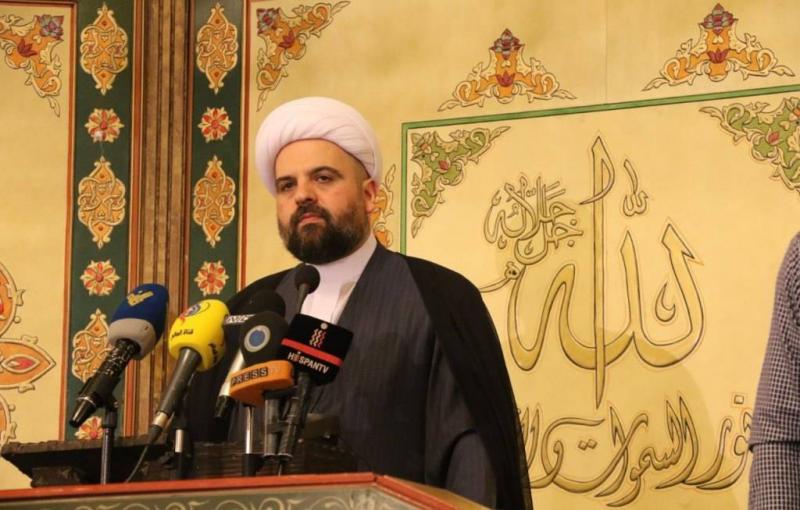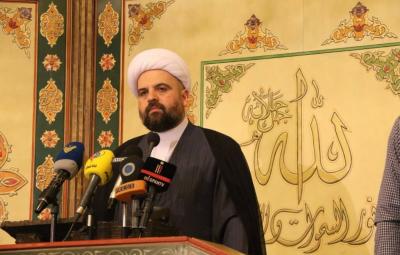The distinguished Jaafari Mufti Sheikh Ahmad Qabalan observed that "the national crisis has reached a point of wrong confrontation and wrong description, amidst a catastrophic collapse whose cause and source are well-known to the Lebanese." He pointed out that "Lebanon's sovereignty is contingent upon citizenship rather than sectarianism. The Baabda Declaration aimed to isolate Lebanon from the region, not the region from Lebanon. Lebanon is situated on a seismic fault line that the Israeli forces exploit to violate the sea, air, and land. The national Lebanese army's defensive capabilities are crippled by Washington and Tel Aviv's red lines. Lebanon's liberation was achieved through martyrdom, not through Resolution 425, and Resolution 1701 merely invited foreign armies to Lebanon, not to the occupied territories. The burial of the National Accord document reflected the dominance of international forces that seek to turn Lebanon into a state without authority or power."
In a statement today, he affirmed that "those who want to solidify the Lebanese entity must accept a state of citizenship, with one executive head rather than multiple heads and sects. Renewing the democratic system starts with popular parliamentary elections that are free from sectarian constraints. Neutrality in times of Israeli occupation and ISIS is not national; rather, it is, in my view, still treason. Neutrality in times of regional fires and turmoil is also not national and does not serve the country, sovereignty, or national decision-making. Lebanon, like Palestine, is a victim of international brutality, not the other way around." He continued, "The balance of power must inevitably go through the abolition of the abominable political sectarianism, and establishing state authority from Nakoura to Akkar requires a state of people without sectarian ties, not a state of sects and walls. Defending Lebanon is primarily a matter of political decision and then military decision. However, the history of the massacres of Sabra and Shatila and the Israeli tanks that besieged the state’s major establishments tells a different story. The decision of peace and war does not wait for charitable organizations or begging at the United Nations but awaits a national force that the Israeli entity must count with a thousand considerations, for the time of the orchestra has come to an end."
He highlighted that "the legitimacy of arms comes from liberation, preventing aggression, and protecting the homeland, not from slogans and propaganda. The lost peace is attributed to Washington, Tel Aviv, and Atlantic games, not to those who sacrifice their loved ones to protect peace and the homeland. The martyrs of liberation are the martyrs of all, for they are martyrs of freedom, sovereignty, and independence, not just victims of the streets. Those who lack the power to defend peace will remain occupied forever, as is the case with Jerusalem, Bethlehem, Maaloula, Palestine, and others." He emphasized that "the significant option is the peace of Lebanon and the region, and fighting should only occur if it is the price for peace. The coexistence we believe in Lebanon is a religion, a doctrine, and a choice, and Lebanon’s geographical reality obliges it to have friendly ties with its neighbor, not the occupier. If the international conference is based on China's framework, we are supportive; however, if it is aligned with Sykes-Picot, Balfour, and the alliance of the willing, we are against it, and we will not yield an inch of Lebanon's sovereignty and decision-making."
Qabalan concluded: "Bkerke is a symbol of national partnership, coexistence, and civil peace, and it has been, and will continue to be, as long as Lebanon exists."




